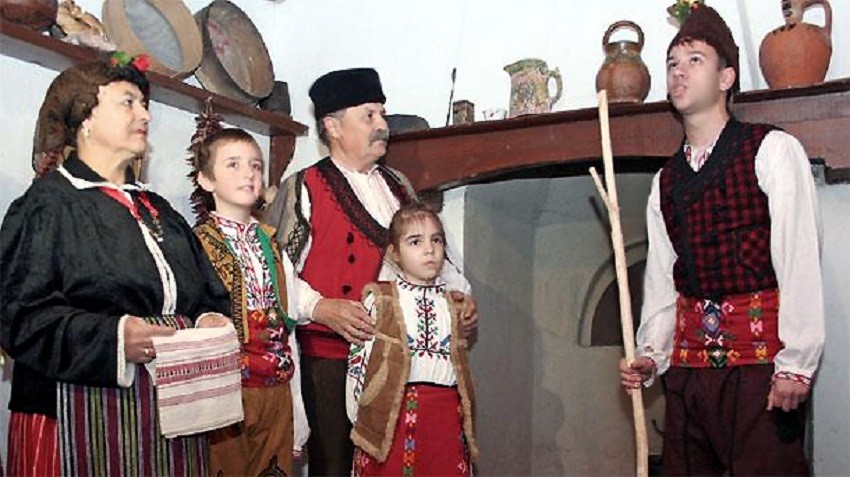People should not work on Ignazhden and it is not even good to leave home. Of course, most of us can't observe this folk tradition these days, but if we look at the other prohibitions involved in the observance of this feast in Bulgaria, they are completely feasible - no money should be lent, nothing should be taken out of the house, and when we go home or anywhere, we have to carry something in our hands. And it is even more important to have good thoughts and wishes in our souls.
According to Bulgarian folklore, Ignazhden is the day that marks the beginning of the New Year, hence the names New Year, Young Day, New Day.
On December 20, the Orthodox church commemorates the martyr Ignatius the God-Bearer, the child whom the Lord took in his arms, pointed it out to the apostles and said, "Unless you become like , you will never enter the kingdom of heaven."
With the incorporation of the pagan holiday to the religious feast the names Ignatovden or Ignazhden appeared. This is one of the most important days in the Bulgarian folk calendar when divinations and rituals are performed to attract good forces. The most common belief is related to the so-called “polaznik” - this is the first person to enter the home. He must be wealthy, his family good, healthy and lucky.
The birth pangs of the Mother of God began on St. Ignatius' Day. This is a common motif in Bulgarian folk songs. On this day for the first time the groups of the so-called “koledari” (carol singers) gather to choose their leader, the training of the young lads begins, who for the first time will take part in the ritual koledari tour of the village. They practise songs and chants performed on Christmas Eve.

"The Mother of God had her birth pangs from St. Ignatius’ Day to Christmas" is the song we chose for you. It tells how the Mother of God gave birth to the Young God on Christmas Eve. And she went out looking for a godfather. On the way she met St. Basil, but he refused to baptize him because St. John had baptized "earth and heaven", so he had to "baptize theYoung God".
Listen to the song performed by a male folklore group from the village of Telish, Pleven region.
Edited by Albena Bezovska
English version Rositsa Petkova
Photos: libraryThree prominent European orchestras will be special guest performers at the 25 th European Music Festival in Sofia. The festival opens on 12 March, and features 19 events divided into a spring and an autumn segment. The diverse programme will..
"Razkazhi mi Prikazka/Tell me a story" is the title of Miro's latest song, which he dedicates to all compatriots who are far away from Bulgaria. "The song is about love and belonging, which time and distance cannot change. I dedicate it to..
The Aramis orchestra of the Mannheim international cultural centre in Germany gave a concert on Todorka peak in Mount Pirin. An open-air snow stage was set up at an altitude of 2,550 m. for the purpose, and a grand piano was taken up the mountain,..
One of the latest songs by the beloved star of several generations, Margarita Hranova, is "Moyat den badi" ("Be My Day"). In it, the..
One of the most prominent musicians in the Strasbourg Philharmonic Orchestra is the Bulgarian violist Boris Tonkov. A proven talent, he graduated from..
On April 18, exactly 130 years ago, Bulgarian opera and folk singer Gyurga Pindzhurova was born in the town of Tran. Having sung her mother's songs..

+359 2 9336 661
